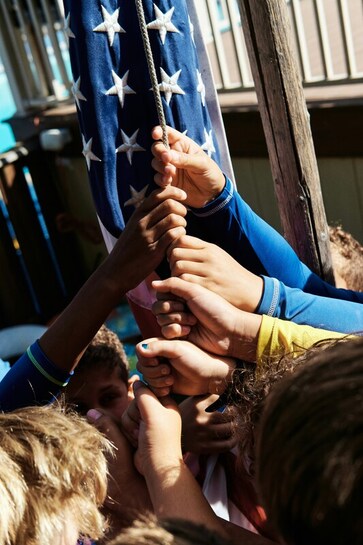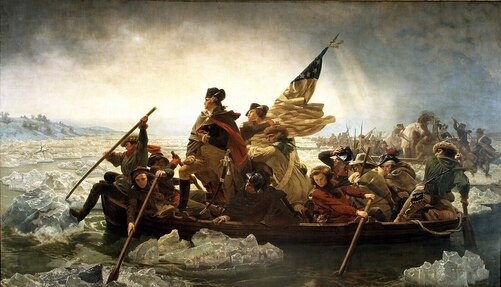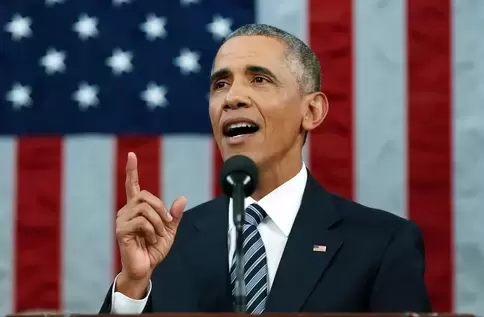|
Gallup polling tells us that in 2013, 85% of young voters (ages 18-29) said they were "extremely" or "very" proud to be an American. A decade later that number stands at 18%. This plummeting figure should concern us all because devotion to country spurs citizen commitment to progress and contributes to a healthy sense of belonging. Detachment and cynicism yield only "meh." And we don't need that. We repost our slightly revised 2023 blog on Love of Country.  In his 2017 article, “A Sense of Belonging” E.D. Hirsch Jr. drew attention to young people’s declining sense of attachment to their country and asserted that has contributed to racial and ethnic polarization and “hyper individualism.” (“Out of one, many.”) Hirsch attributed the decline in large part to the failure of schools in the past six decades to teach substantive content (U.S. history, civics, biographies, poetry, songs) and to emphasize instead the primacy of the individual and his/her individual interests. Teach the child, not the subject has been the mantra. Lost in the process has been an understanding of our shared past, a sense of community, belonging, and solidarity with our fellow citizens. Much diminished is the devotion to country that spurs students to contribute to the advancement of something larger than themselves of which they are a part. Hirsch called for cultivation of “the right kind of nationalism” in American schools, one that educates about our past, our heroes and milestones, one that enshrines our highest ideals. “The right kind of nationalism is a very good thing,” he asserted. The right kind of modern nationalism is communal, intent on including everyone. The wrong, exclusivist kind, exemplified by the racism of the Nazis, gave all nationalism a bad name and helped turn the post-Vietnam left away from nationalism of any sort. The sentiment was that most countries are pretty bad, especially big ones that prey on little ones. When designing the K-8 Core Knowledge Sequence and in revising it since, framers abandoned the insular social studies framework of “me, my family, my neighborhood, my community” that had characterized elementary education since the 1970s. They substituted strong U.S. and World History programs. Children were encouraged to see themselves as part of the long arc of human history (beginning with the Ice Age, moving through ancient Mesopotamia, Egypt, India, China, Greece, Rome, the Middle Ages worldwide, and modern times). And through their studies in U.S. history from first to eighth grade, students have been encouraged to see themselves as part of the American journey, which has been a worthy and unique one. Let’s go ahead and say it: an exceptional one.  The American Revolution with its trailblazing insistence that “all men are created equal” was not an immediately realized ideal. But the establishment of a republic on that principle, the principle of freedom and equality, was a radical departure from the norms of the times, when monarchy, oligarchy, and tyranny prevailed around the globe. At the time of the American Revolution, when those words were proclaimed, the vast majority of the world’s people lived in some sort of “unfreedom” as serfs, slaves, or indentured servants. (The American population itself was 20% enslaved.) 1776 was a root-level departure. And the entire American story has been one of living out the ever-expanding meaning of those words to include women, Native Americans, people of color, people of all races and faiths. When U.S. history is told fully and honestly, we see injustice in our past – as we do in world history. But from a historical standpoint, no nation has provided more opportunity to more people of more varied backgrounds than the United States. We do our children a disservice when we fail to tell these stories. Stories of key people and key moments in time, along with stories of ordinary people doing extraordinary things. We should tell the stories of George Washington, John Adams, Thomas Jefferson, and Abe Lincoln, and also Benjamin Banneker, Abigail Adams, Sacajawea, Clara Barton, Elizabeth Cady Stanton, Sojourner Truth, William Lloyd Garrison, and Frederick Douglass. Surely, let's focus on Theodore and Franklin Roosevelt, John Muir, Dwight Eisenhower, but also George Washington Carver, Booker T. Washington, Ida B. Wells, Eleanor Roosevelt, Frances Perkins, Rachel Carson, and Cesar Chavez. Children can and should be proud of them all. These are the stories that instill hope and cultivate a shared love of our country and its ideals. Many, many of those are featured in our February “Virtue of the Month” tab, in our Presidents' Day tab, and on our Black History link, our Women’s History link, our Immigrant Heritage link. Many are immortalized in the Childhood of Famous Americans series, and many re-envisioned in the Tales of Young Americans series we spotlight in our February overview. In his Farewell Address, George Washington addressed a country scarred by deep divisions. He wrote: "Citizens, by birth or choice, of a common country, that country has a right to concentrate your affections. The name of American, which belongs to you in your national capacity must always exalt the just pride of patriotism more than any appellation derived from local discriminations." In his final State of the Union address in 2016 Barack Obama picked up that theme. He called on Americans to listen to “voices that help us see ourselves not, first and foremost as black or white or Asian or Latino, not as gay or straight, immigrant or native born, not as Democrat or Republican, but as Americans first, bound by a common creed. Voices Dr. King believed would have the final word – voices of unarmed truth and unconditional love.” Improvising on Walt Whitman's I Hear America Singing, he reminded us: "And they’re out there, those voices….they’re busy doing the work this country needs doing...  I see it in the worker on the assembly line who clocked extra shifts to keep his company open, and the boss who pays him higher wages instead of laying him off. I see it in the Dreamer who stays up late to finish her science project, and the teacher who comes in early because he knows she might someday cure a disease. I see it the American who served his time, and made mistakes as a child but is now dreaming of starting over – and I see it in the business owner who gives him that second chance. I see it in the protester determined to prove that justice matters – and the young cop walking the beat, treating everybody with respect, doing the brave quiet work of keeping us safe … That’s the America I know. That’s the country we love. Clear-eyed. Big-hearted….Optimistic that unarmed truth and unconditional love will have the final word. That’s what makes me so hopeful about our future. Thank you, God bless you. God bless the United States of America.” Mary Beth Klee Dr. Klee holds a Ph.D. in the History of American Civilization from Brandeis University.
1 Comment
2/8/2024 09:58:43 am
The Core Knowledge Sequence and numerous other publications related to history, geography, civics, and other topics are available for free download from the Core Knowledge Foundation website at www.coreknowledge.org
Reply
Your comment will be posted after it is approved.
Leave a Reply. |
AuthorWrite something about yourself. No need to be fancy, just an overview. Archives
July 2024
Categories |
